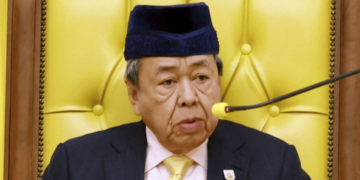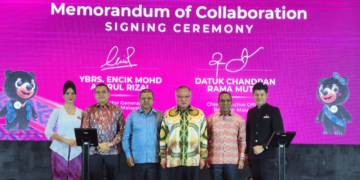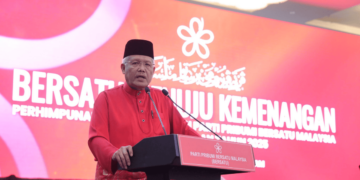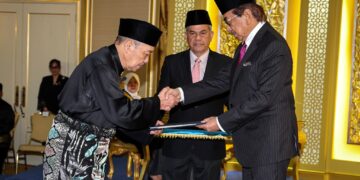KUALA LUMPUR – In a move that further underscores a wave of political accountability rarely seen in Malaysian politics, Nik Nazmi Nik Ahmad, Minister of Natural Resources and Environmental Sustainability, has tendered his resignation from the Cabinet effective July 4, 2025.
The announcement, made via a press statement today, comes just hours after Economy Minister Rafizi Ramli stunned the nation with his resignation. Both high-profile exits follow their respective defeats in the recent Parti Keadilan Rakyat (PKR) internal elections, signalling a powerful message about democratic integrity and respect for party mandates.
Nik Nazmi, a former Vice President of PKR, stated that his Cabinet role was tied to his leadership position in the party. “As I have failed to defend my party post during its recent elections, I have decided to resign as a Minister,” he wrote with characteristic clarity and humility.
The 42-year-old, who began his ministerial journey in December 2022 under the Unity Government, has been widely regarded as one of the most reform-driven ministers in the Anwar administration. Under his stewardship, Malaysia saw rare political will in environmental governance: amendments to the Environmental Quality Act 1974, unprecedented transparency in Environmental Impact Assessments, a globally-praised reduction in deforestation, and the tabling of landmark energy and climate legislation.
From Reformist Flame to Responsible Farewell
What makes Nik Nazmi’s resignation particularly poignant is not the fact of stepping down, but the manner in which he did so. Rather than clinging to power, he walked away with grace and clear-eyed resolve, echoing a sentiment once expressed by the late British MP Tony Benn: “I am leaving Cabinet to devote more time to politics and public service.”
In a time when many politicians hold on despite loss of legitimacy or public confidence, Nik Nazmi’s choice reflects a rare breed of leadership, one anchored in principle rather than position.
His resignation letter outlines not only achievements, but also a spirit of inclusive governance. “We tried our best to take an open, consultative approach with all in introducing laws and designing policies,” he wrote, while also expressing gratitude to civil servants and stakeholders who collaborated in bringing much-needed structural reform.
A Green Legacy in the Making
Among the most impactful initiatives under Nik Nazmi’s leadership was Malaysia’s early submission of its National Biodiversity Strategies and Action Plan (NBSAP), an effort praised by none other than UN Secretary-General António Guterres for its contribution to halting biodiversity loss. He also pushed for the Energy Efficiency and Conservation Act and laid the groundwork for the long-anticipated National Climate Change Bill (RUUPIN), which is now in its final stages before Cabinet review.
In the notoriously fragmented water sector, his ministry achieved what many before him failed to do: establishing a national Tariff Setting Mechanism to address long-standing issues of sustainability and service delivery.
Political Culture at a Crossroads
Rafizi Ramli’s and Nik Nazmi Nik Ahmad’s departures on the same day have caused significant ripples in Putrajaya. More than a Cabinet shake-up, it is a symbolic moment, one that invites Malaysians to reflect on the evolving culture of accountability within their political system.
In stepping down not under duress, scandal, or failure, but out of democratic principle, both leaders have redefined what it means to serve and to leave with dignity.
Nik Nazmi now returns to the backbenches of Parliament and to his constituency in Setiawangsa, carrying with him not just experience, but credibility that is likely to keep him relevant in Malaysian politics for years to come. -MalayaDailyToday


































































